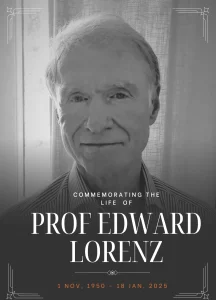 Edward Lorenz, a prominent scholar in the fields of economics and social sciences, passed away on January 18, 2025, at the age of 74. His contributions spanned several disciplines, including institutional and evolutionary economics, work sociology, and economic history.
Edward Lorenz, a prominent scholar in the fields of economics and social sciences, passed away on January 18, 2025, at the age of 74. His contributions spanned several disciplines, including institutional and evolutionary economics, work sociology, and economic history.
Lorenz was renowned for his ability to synthesize complex ideas from various branches of social science, focusing particularly on the organization of work and the role of trust in economic systems. Lorenz’s early research examined the industrial development of shipbuilding in the UK and France, linking it to national institutional frameworks that influenced management styles and work organization.
In the late 1990s, he shifted his focus towards understanding the significance of trust in economic learning, co-authoring the influential book Trust and Economic Learning with Nathalie Lazaric in 1998.Throughout his career, Lorenz developed a typology of work organization alongside Antoine Valeyre, which was later applied in various studies.
He played a pivotal role in international collaborations, notably with Aalborg University,contributing to significant research on innovation and learning modes through projects such as Disko. In addition to his academic achievements, Lorenz was instrumental in fostering a community of young scholars within AfricaLics, where he served as a mentor and trainer. His commitment to nurturing talent in developing countries culminated in numerous publications addressing the impact of the Fourth Industrial Revolution on these regions.
Colleagues and friends remember Lorenz not only for his scholarly contributions but also for his generosity in sharing knowledge and his humility as a mentor. Prof. Bengt-Åke Lundvall, a close friend and collaborator, described him as a unique thinker capable of addressing complex questions with quantitative techniques.
A condolence meeting was held on January 24 at 6 PM CET across the Globelics community to honor Lorenz’s legacy.
His passing is felt deeply within the academic community globally, particularly among those who had the privilege to learn from him.
